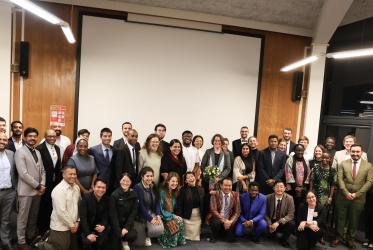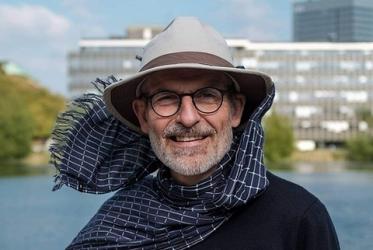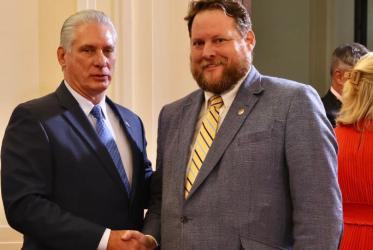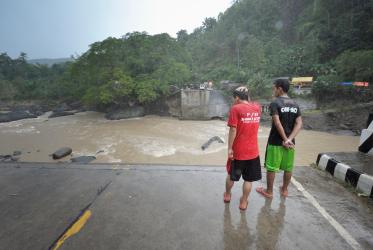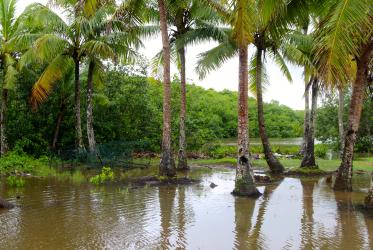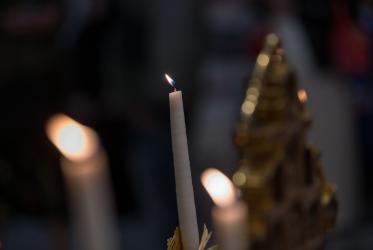«Le Pacifique est une grande région océanique, mais d’un petit poids, ce que nous percevons comme une force et non comme une faiblesse. Si nos îles sont vulnérables aux changements climatiques, à la géopolitique et au néocolonialisme, nous affirmons notre résilience, comme don de Dieu, enracinée dans la sagesse autochtone et célébrée comme spiritualité de l’abondance et de l’hospitalité»; c’est le message partagé au nom de la région Pacifique par Iemaima Vaai, représentante de l’Église méthodiste de Samoa et conseillère pour la jeuneuse auprès du Conseil œcuménique des Églises (COE), lors du Comité central.
11 July 2023
